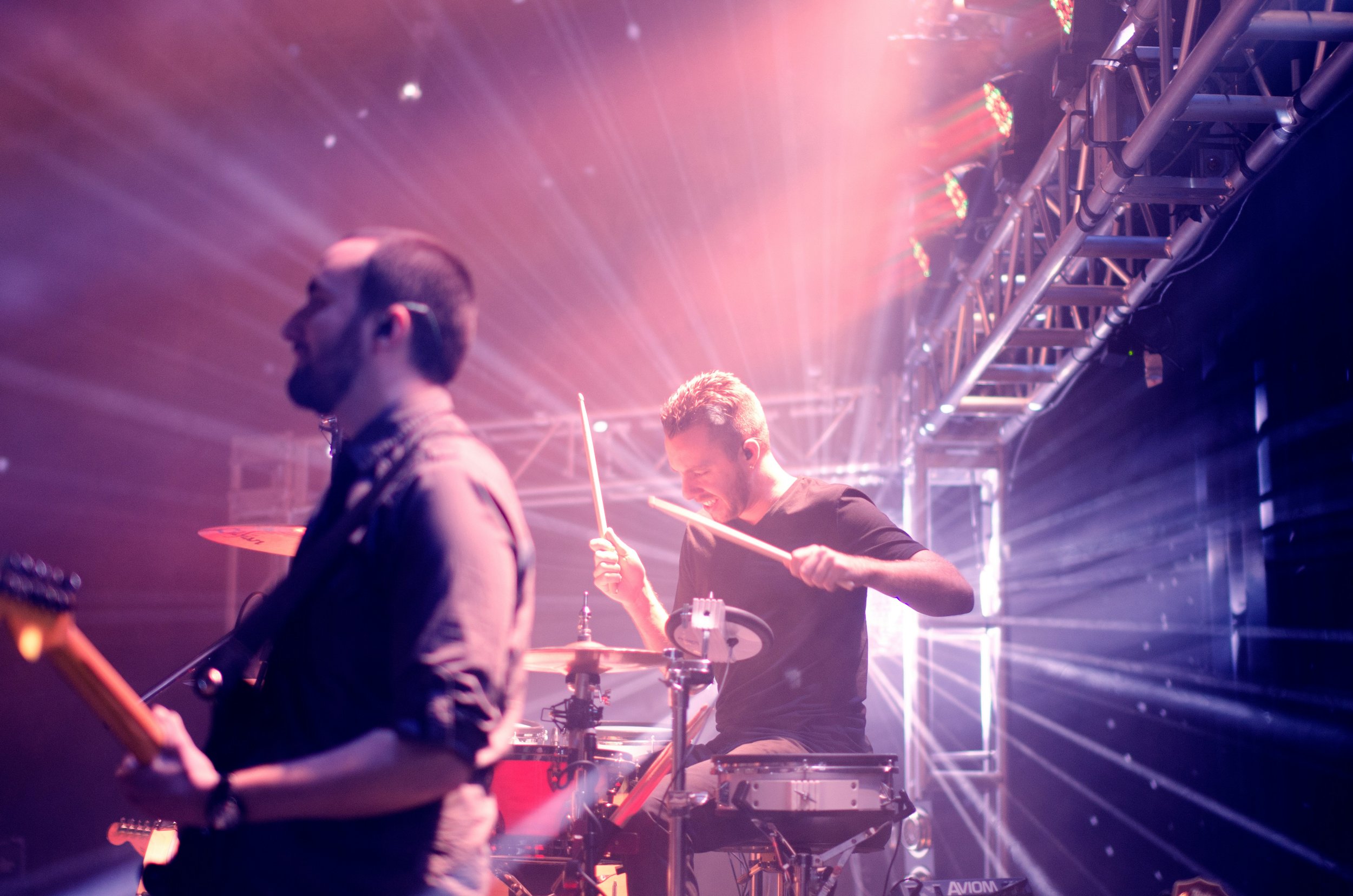
What is the Music Economy Development Initiative (MEDI)?
The Music Economy Development Initiative (MEDI) is a global partnership driven by the Center for Music Ecosystems, Global Citizen, and international and local partners. Its mission is to expand music's potential to eradicate poverty and create a better future.
What Does MEDI do?
MEDI has two strands:
Research
The MEDI portal is a definitive source of country‑specific data and case studies demonstrating music's economic and social potential. It is free to access and aimed at accelerating understanding of how music can be a tool to address global poverty and foster economic development.
Partnerships
MEDI will facilitate programs, policies, and investments to support the development of music ecosystems in Africa and worldwide. These include Move Afrika, investments by governments, multilaterals, and the private sector in music infrastructure, and support for national copyright and infrastructure reform.
How will we do this?
The MEDI research portal will provide policymakers, governments, and private sector partners with research, economic data, case studies, and frameworks to map music's potential to fight extreme poverty. The data will provide the foundation to support local ecosystem development, including policy and copyright reform, infrastructure investment, skills training, education, and capacity development.
Why Does This Matter?
Our vision is clear: a world where strong music ecosystems help end extreme poverty and music is an economy everywhere. Music moves us, unites communities, and inspires hope.
Yet, while music’s value is shared worldwide, access to its economic benefits is not. Many countries lack the essential foundations for treating music as an economic good, including robust copyright regulation, access to education, skills development, and live and recorded music infrastructure. This reduces the potential value of music to accelerate global economic development and advocacy efforts to create and enforce copyright, infrastructure, and education policies needed to accelerate its value and realize its potential.
The World Bank has stated that we need 1.2 billion jobs to meet demographic demand, but only 420 million are set to be created. Our vision is simple: in villages, cities and countries, music fuels incomes, concerts create jobs, and studios support neighborhoods. A young person with a guitar, a voice, or a song idea can succeed as an entrepreneur. And all this activity is helping to address extreme poverty.
Everyone, everywhere, should have access to music's economic potential. MEDI’s mission—in partnership and collaboration with a broad coalition—is to ensure this happens.
Looking to the future
With this research, we aim to centralize music as a powerful, accessible tool everywhere to fight extreme poverty. The goal is to support, with local experts who understand what’s best for their localities, stronger foundations for intellectual property regulation, music education, and investments in music infrastructure. The more we demonstrate that music is an economy, the more it will be treated as an economic good.
Please join us in this mission.
We thank our partners for their valuable support in providing data for this research
Why is MEDI essential?
-
In 2023, global music copyright revenues totalled $45.5 billion, which continues to grow at a double-digit pace, increasing by 11% from 2022. This comprises $28.5bn in recorded music revenues, $12.9bn in authors' collective management organizations (CMOs) collections, and $4.2bn in direct music publisher income. Notably, the majority of these revenues—67.3% for recorded music and 87.2% for musical compositions—stem from digital consumption. These royalties rely on robust national laws and copyright infrastructure to track usage, collect revenues, and distribute them accurately to artists.
-
While the current value and benefits generated by the music ecosystem are substantial, there is still significant room to grow. Many countries lack the institutions, including policies, frameworks, regulations, infrastructure, and norms, that support capturing music’s value as an economic good, which creates income on the ground for creators anywhere. In Africa, for example, the Atlantic Council points to a lack of IPR protections and enforcement as a missed opportunity to use music and creative IP to address extreme poverty. As it points out, these deficiencies produce “lost opportunities for wealth creation, solving youth unemployment, receipt of foreign exchange reserves, and development of local capital markets.”
-
Music suffers from an ignorance created by its ubiquity. Because of music's widespread availability, some ignore what is needed to get it to us, the income it can generate, and what this income can provide as a tool to fight poverty, improve livelihoods, and support global development.
-
Music operates as an ecosystem, an interconnected web among those who create it, those who present it, and those who enjoy it—each plays an essential role in its health and growth. Success requires a strong and nimble ecosystem. As such, the value created within the music ecosystem and through music IP reverberates across countries and communities. The Recording Industry Association of America has estimated that for every $1 of revenue generated in the US music industry, an additional 50c was created in adjacent sectors. Music creates opportunity. In territories where youth unemployment is high, for example, music provides a way for young people to generate revenue and enter the employment market—whether as artists, entrepreneurs, or employees at other music businesses—which then allows them to partake in the broader consumer marketplace, feeding the entire downstream economy.
-
Leveraging the power of music to fight global poverty is an opportunity for all of us. Together, we can all make a difference in maximizing the potential for music to be a path out of poverty for people and an income generator for individuals, communities, governments, and society. This requires investment and policies demonstrating that music and the businesses and skills it engenders have value and, as such, are serious economic sectors. We hope MEDI accelerates this global effort, and the more partners we have, the better.







































